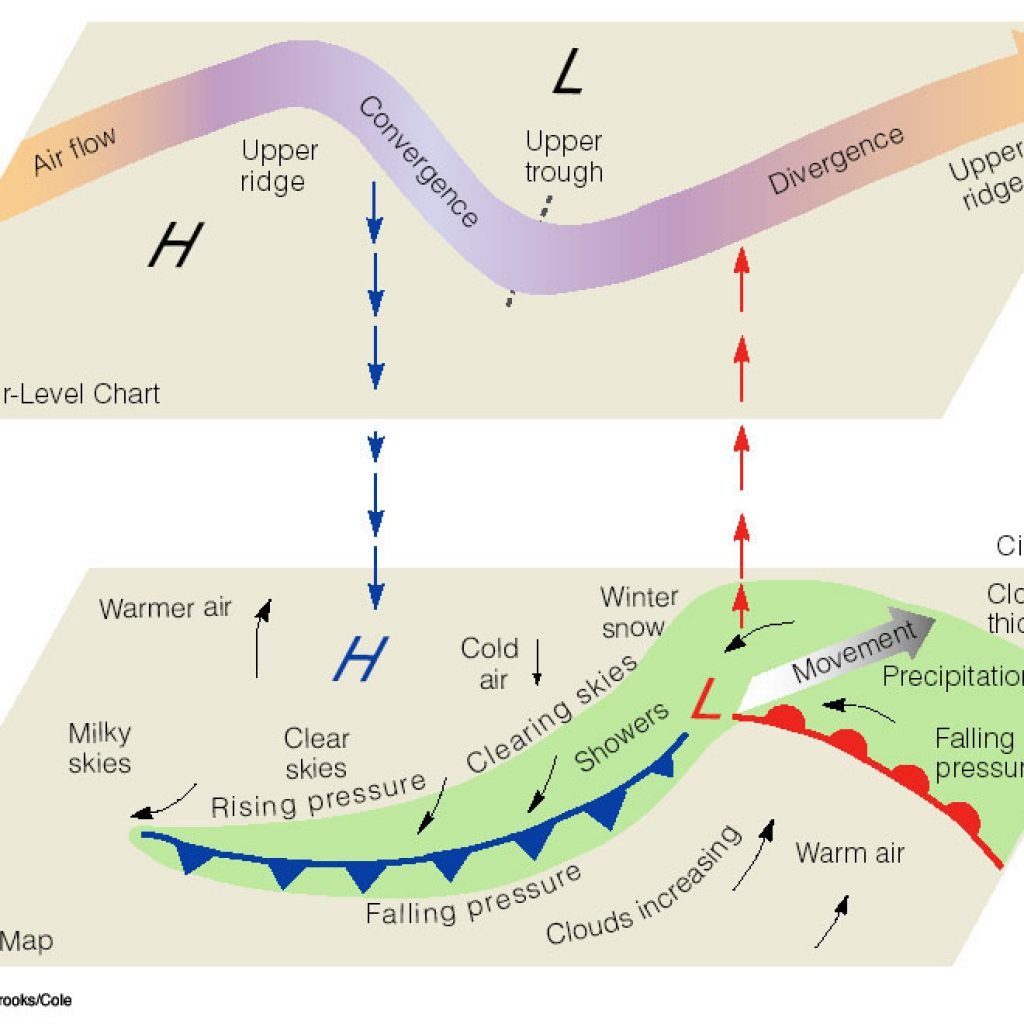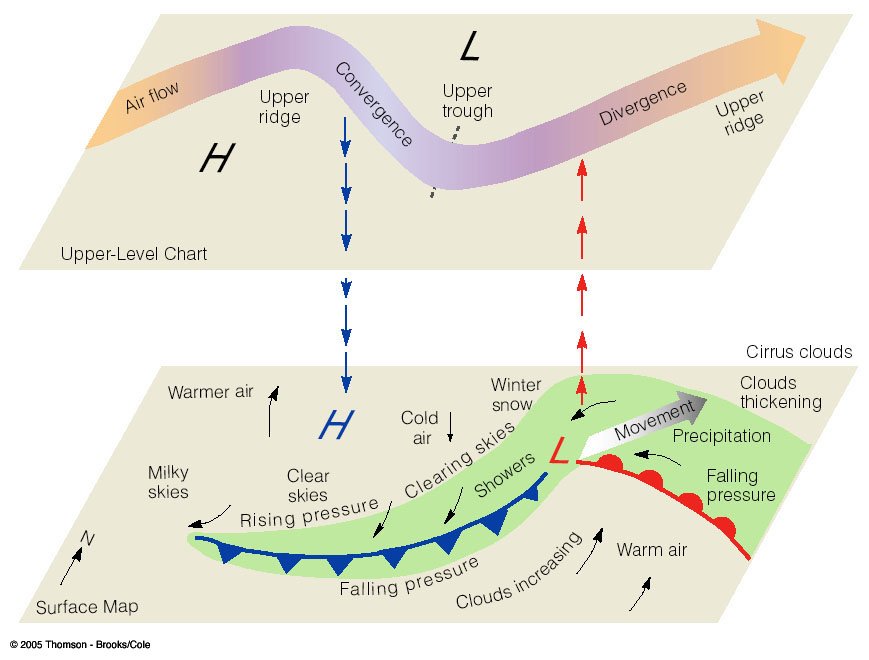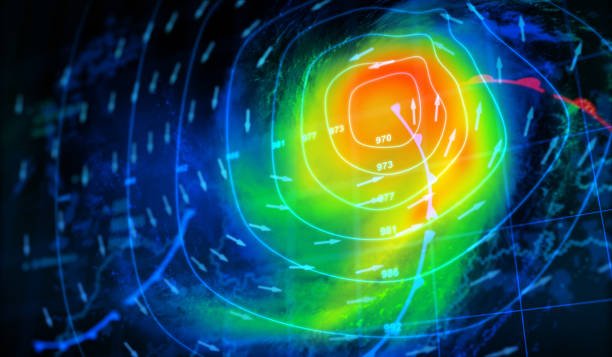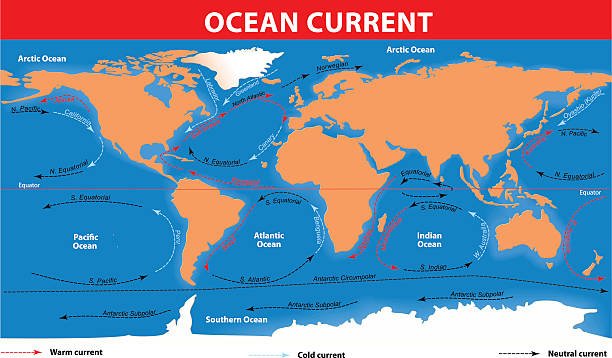Mid Latitude Cyclones Notes Grade 12: Mid-Latitude cyclones are also known as extra-tropical or frontal cyclones. These weather systems are named for occurring in the middle latitudes of earth. They are classified as large, traveling, cyclonic storms up to 2000 kilometers in diameter with centers of low atmospheric pressure.
Introduction to Mid Latitude Cyclones
These are low pressure weather systems that occur in the middle latitudes of the earth, usually between 30° and 60° latitude north and south of the equator. They are sometimes called temperate cyclones, extra-tropical cyclones, mid-latitude cyclones, frontal depressions or wave cyclones.
The system is made up of a cold front and a warm front. The cold fronts reach South Africa mostly in winter when all the pressure belts and wind systems move slightly north. This is why the south-western Cape receives winter rainfall. The rain is brought by cold fronts passing over this area passing from east to west. The warm front is bent southwards away from South Africa.
Covered on these notes
- Stages of Development
- Cold Front Conditions
- Warm Front Conditions
- Cold Front Occlusion
- Warm Front Occlusion
- Satellite Photo of Mid-Latitude Cyclone
- Synoptic Map of Mid-Latitude Cyclone
Download Free Midlatitude Cyclones Notes for Grade 12 provided by: www.learnxtra.co.za
Video Lesson Midlatitude Cyclones:
Mid Latitude Cyclones Visuals

Mid Latitude Cyclones Grade 12 Question and Answers
Common Questions about Mid Latitude Cyclones
Give seven characteristics of mid latitude cyclone
- Move west to east
- It has cold front and warm front
- Affect south Africa in winter
- They occur in families or groups
- It has oval isobars
- Occur through out the year
- Occur between 30-60 degrees North and South
- Form between 40 – 60 degrees North and South
Give 4 stages of Mid latitude cyclone
1. Initial stage
- Two air mashes do not mix because they separated by front.
- A cell of low pressure begins
2 Mature stage
- Air moves clockwise in southern hemisphere and anti clockwise in northern hemisphere.
- Polar front forms cold and warm front -cold front lead to cold air, area of cold front called cold sector
- Warm front lead to warm air , area of warm front lead to warm sector
3 Occluded stage or Occlusion stage
- cold front overtakes warm front / warm front overtakes cold front.
4. Dissipating stage / decaying stage
System stars to slow down/ dissipate System become weak it ends.
Name conditions which are necessary for the formation of mid latitude cyclones
- Warm ocean waters of at least 78°F (26°C)
- At least 5° latitude from the equator;
- Low vertical wind shear;
- Moisture in the mid-troposphere;
- Unstable Conditions ESS5
Also read these:
- The Path of the Tropical Cyclone Eloise
- What is the impact of Coriolis force and latent heat in the development of tropical cyclones
- Why do mid-latitude cyclones move from West to East
- Mid Latitude Cyclones Notes Grade 12
Grade 12 Geography Free Resources
- Geography Grade 12 Essays
- Mid Latitude Cyclones Notes Grade 12
- Geography Grade 12 2019 Exam Papers and Memos
- Geography Grade 12 2020 Past Papers and Memos
- Geography Grade 12 Research Tasks (Topics) and Memos (SBA)
- Grade 12 Geography Exam Papers and Memos for 2019 September and November





